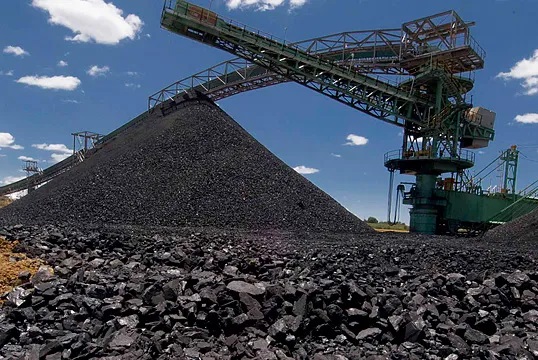Nigeria is often recognised for its rich deposits of oil and gas, which have dominated its economy for decades. However, beneath its vast landscape lies a wealth of untapped mineral resources, including gold, coal, limestone, tin, and many others. Despite this potential, the country has struggled to effectively harness these resources due to a myriad of challenges, ranging from regulatory inefficiencies and infrastructural deficits to environmental and security concerns. This article delves into the issues plaguing Nigeria’s mining sector and explores potential solutions to unlock its full potential.
Today, Nigeria boasts over 40 different types of minerals in commercial quantities, spread across the country’s 36 states and the Federal Capital Territory. These include solid minerals like barite, limestone, lead-zinc, iron ore, gold, and bitumen. According to the Nigerian Geological Survey Agency, the country has potential reserves worth trillions of dollars. Yet, mining contributes a meagre 0.3% to Nigeria’s GDP, a stark contrast to the sector’s potential.
The first of the issues is the regulatory environment. The Nigerian Minerals and Mining Act of 2007 was established to provide a clear framework for mining activities, but its implementation has been fraught with inconsistencies and bureaucratic red tape. Licencing procedures are often cumbersome and lack transparency, deterring both local and foreign investors.
Moreover, there is a disconnect between federal and state governments regarding control and management of mineral resources. States have limited autonomy over their resources, leading to conflicts and inefficiencies. The Nigeria Extractive Industries Transparency Initiative (NEITI) has repeatedly called for clearer regulations and better coordination between federal and state authorities to streamline operations.
Inadequate infrastructure is another significant barrier. Effective mining requires robust transportation networks, a reliable power supply and access to modern mining technology. Nigeria’s infrastructure is underdeveloped, with poor road networks, unreliable electricity, and limited access to necessary technology hampering mining. Many mining sites are in remote areas, making transportation of minerals to markets costly and inefficient.
Socially, mining communities often face displacement, loss of livelihoods, and inadequate compensation. Conflicts between mining companies and local communities are not uncommon, fueled by grievances over environmental damage, insufficient local employment, and the inequitable distribution of mining benefits.
Security concerns are another major impediment. Many mineral-rich areas are plagued by insurgency, banditry, and communal conflicts. These security challenges deter investment and disrupt mining activities. For instance, gold mining in Zamfara State has been linked to banditry and violence, making the region too risky for large-scale mining operations.
Despite these challenges, there are pathways to improvement. First, regulatory reforms are essential. Simplifying the licencing process, enhancing transparency, and clarifying the roles of federal and state governments can create a more investor-friendly environment. The government could also incentivize investment through tax breaks and subsidies.
Second, addressing infrastructural deficits is crucial. Public-private partnerships (PPPs) could be a viable model for developing the necessary infrastructure. Improving road networks, ensuring reliable power supply, and investing in modern mining technology would significantly boost the sector. Leveraging modern technology and best practices from other mining jurisdictions can help improve productivity and reduce environmental impacts.
Addressing illegal mining and child labour through stricter enforcement of laws and providing alternative livelihoods for affected individuals is imperative. Education and awareness campaigns, coupled with support for artisanal miners to formalise their operations, can help transition the sector towards more sustainable and ethical practice
Similarly, improving security in mining areas is paramount. The government must enhance its efforts to combat insurgency and banditry. Collaborative security arrangements involving local communities, mining companies, and security agencies can help create a safer mining environment.
Nigeria’s mineral resources hold immense potential for economic diversification and growth. However, realizing this potential requires concerted efforts to address the regulatory, infrastructural, environmental, and security challenges plaguing the sector. By implementing comprehensive reforms and fostering a more conducive environment for mining, Nigeria can unlock the wealth beneath its soil and pave the way for sustainable development and prosperity.
Nigeria is renowned for its oil and gas resources, but it also has a wealth of untapped minerals such as gold, coal, limestone, and tin. Despite the potential, mining contributes only 0.3% to Nigeria's GDP due to various challenges including regulatory inefficiencies, infrastructural deficits, and security issues.
The Nigerian Minerals and Mining Act of 2007 aimed to provide a clear framework, but its implementation has been inconsistent, deterring investors. The disconnect between federal and state governments further complicates the management of resources.
Poor infrastructure, including inadequate transportation and unreliable power supply, hinders mining activities. Social conflicts, displacement, and environmental damage also pose significant challenges. Additionally, security issues such as insurgency and banditry in mineral-rich areas deter investment.
To address these challenges, the article suggests regulatory reforms, better infrastructure through public-private partnerships, stricter enforcement against illegal mining, and improving security conditions. With comprehensive reforms, Nigeria can unlock its mineral wealth and promote economic growth.






